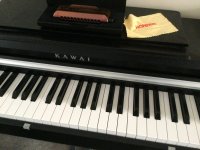OuijaBoard
Well-known member
- Joined
- Jul 16, 2016
- Messages
- 817
- Reaction score
- 854
Interesting that a Chinese made Hohner was chosen for this website logo?
The whole gang gave that one a good going-over on another recent discussion of Chinese Hohners. This thread is something like 5 pages, but it's in there somewhere!
Irregular tremolo in brand new accordion plus other issues
The FB group "Traditional Irish Piano Accordion" features frequent posted playing clips by commenters of themselves or others in action, most quite delightful. Among them is a gent in rural Ireland having exuberant fun on a 3-voice Hohner Bravo. Honestly, it sounds almost as good for this use...
www.accordionists.info



